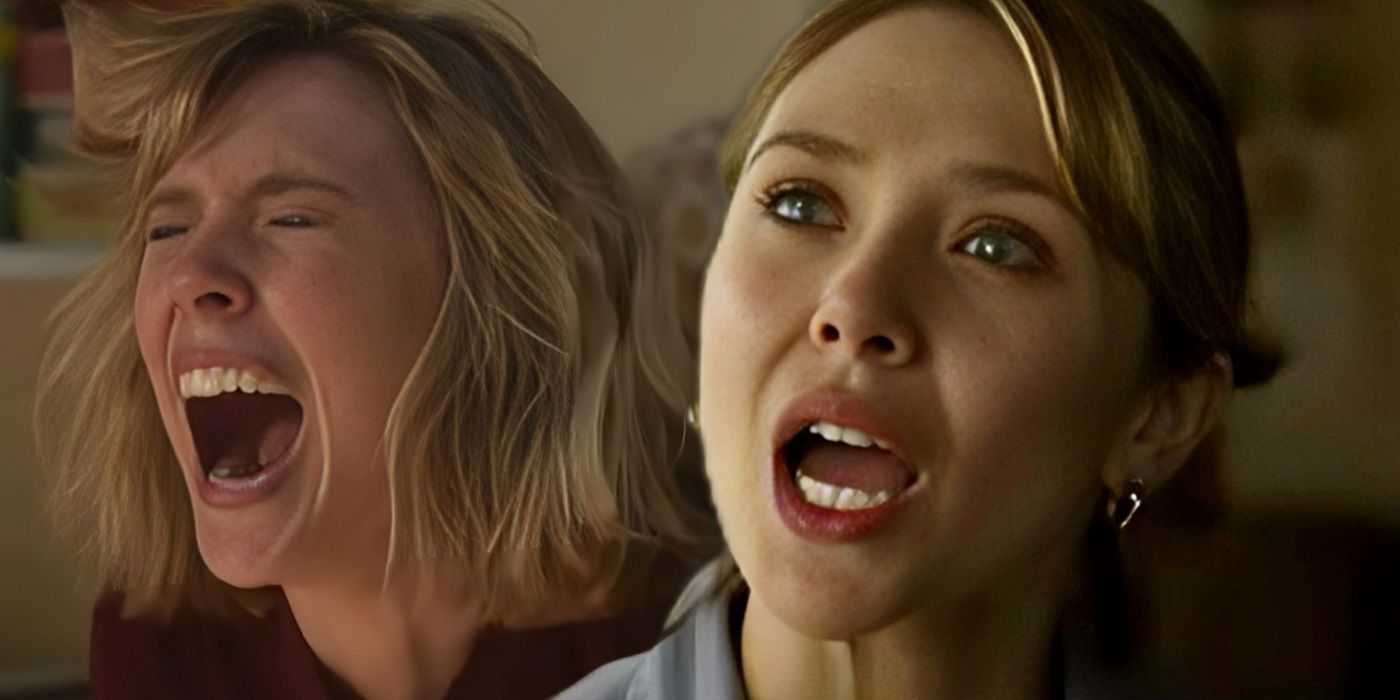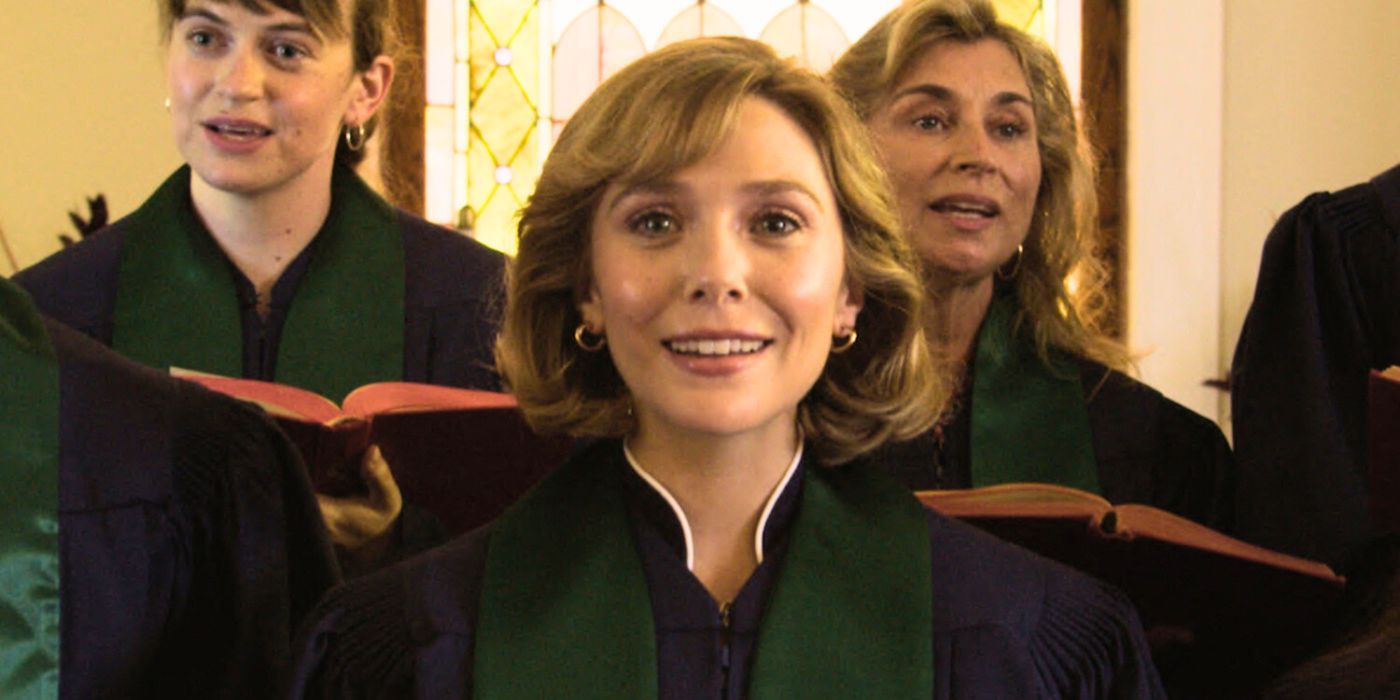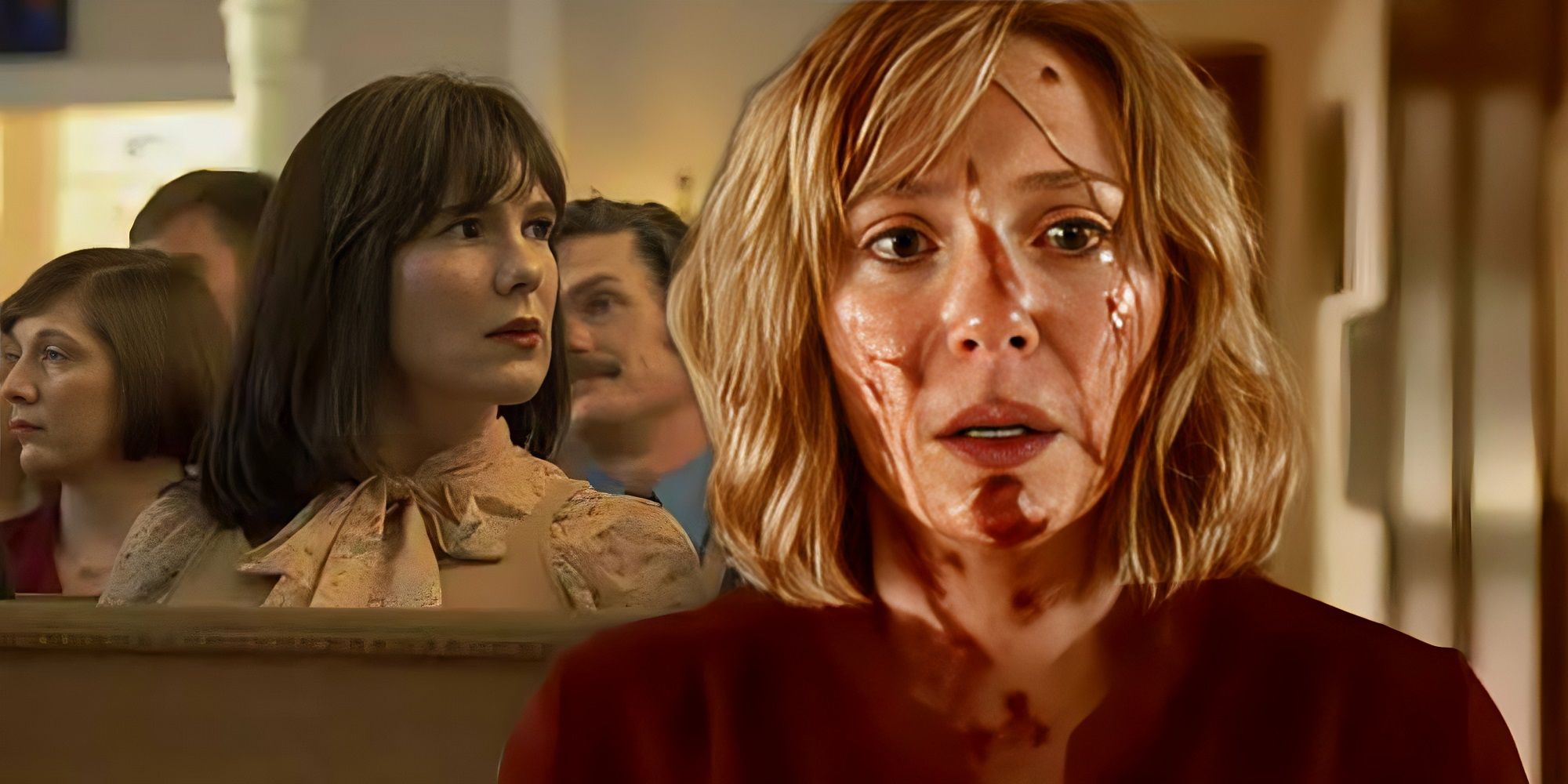WARNING! This article contains SPOILERS for Love & Death!
This article contains mention of murder.
Love & Death episode 5's shocking depiction of Candy Montgomery's hypnosis evokes one's curiosity about its accuracy - hence, here is a breakdown of what actually happened when Candy visited a psychiatrist before her trial. After walking through Candy Montgomery and Allan Gore's relationship timeline and how it led to Betty's murder in its first few episodes, Love & Death episode 5 shows how law enforcement gradually unraveled the mystery behind Betty's death. It establishes how the closer they get to understanding the nature of the crime, the more they start suspecting Candy of killing Betty Gore.
Realizing that the cops are edging closer to the truth, Candy decides to seek legal help from a lawyer named Don Crowder (played by Tom Pelphrey in Love & Death). Crowder first asks her to take a polygraph test and then makes her visit a psychiatrist for a hypnosis session. With what follows, the psychiatrist uses hypnosis to help Candy revisit the crime and other buried childhood memories that triggered her aggressive reaction against Betty Gore. The portrayal of hypnosis in Love & Death's episode 5 is so unsettling that it borders on surrealism, leading one to question its authenticity.
Candy Montogomery Was Actually Hypnotized Before Her Murder Trial
As surreal as the Love & Death scene may seem, its depiction of the hypnosis is not too far from reality. One of Don Crowder's associates, Elaine Carpenter, had accompanied Candy to the psychiatrist's office. A few hours after Candy disappeared with the psychiatrist Dr. Fred Fason, Carpenter started hearing loud, terrifying shrieks from Fason's office. Reportedly (via Texas Monthly), Candy easily went under a hypnotic trance with Dr. Fason's instructions, who then made her revisit Betty Gore’s utility room by saying, “When I snap my fingers, you will begin re-experiencing and relating that time to me as you go through it."
After waiting a few moments, the doctor asked her how she was feeling. As portrayed in Love & Death, Candy responded with one word: “Hate.” When Fason told her to be more expressive, Candy remarked that Betty messed up her life and even referred to Allan by saying she does not want him. The psychiatrist then made her go back further in time by asking her if she had ever felt that furious before. With this, Candy found herself reliving a traumatic memory from when she was four.
She recalled how she lost a race to a boy named Johnny and, in a bout of anger, threw a jar against a pump. Her mother took her to the hospital but kept asking her to "shush," which made her even angrier. When Fason asked her if she was afraid of being punished for her anger, she rubbed her head and said, "It hurts." To end the session, Fason asked Candy (played by Elizabeth Olsen in Love & Death) to "kick and scream" all she wanted to. Following his command, she screamed, "It hurts," a few more times until the doctor snapped her out of her trance.
How Candy Montgomery's Hypnosis Helped Win Her Murder Trial
During the real Candy Montogmery trial that Love & Death adapts, Don Crowder brought Dr. Fason to the court. The psychiatrist testified that when Betty Gore uttered "shush" to Candy during their confrontation, it triggered her repressed childhood memories of her anger toward her mother's ill-advised discipline and made her have a dissociative reaction. As a result, she struck Betty 41 times with an axe. Since Candy Montgomery maintained that she did not intend to kill Betty Gore (played by Lily Rabe in Love & Death) and only did it for self-defense, Dr. Fason's reports played a key role in convincing the jury that Candy was not guilty.
New episodes of Love & Death release Thursdays on HBO Max.
Sources: Texas Monthly



